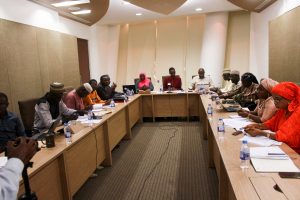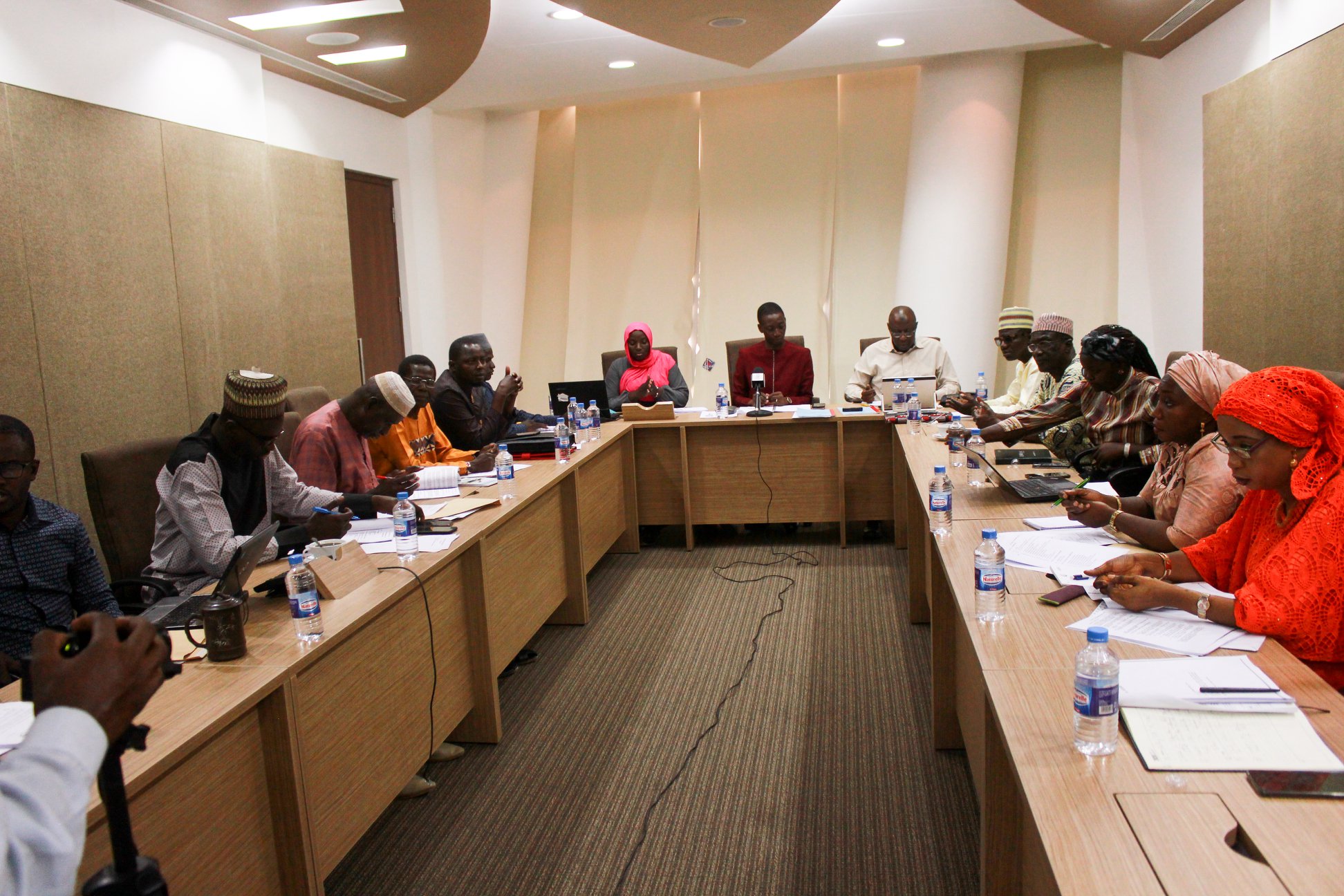 The Gambia Press Union on Tuesday 11th February 2020 held a consultative meeting with the National Assembly Select Committee on Education on the draft Access to Information Bill, 2019 that has been submitted to the National Assembly for enactment.
The Gambia Press Union on Tuesday 11th February 2020 held a consultative meeting with the National Assembly Select Committee on Education on the draft Access to Information Bill, 2019 that has been submitted to the National Assembly for enactment.
The bill, prepared by the GPU then submitted to the Gambia government, was tabled to the National Assembly by the Minister of Justice during the last plenary session of the Assembly in December 2019.
As it is the procedure now, the bill has been referred to the National Assembly Select Committee on Education to review and report to the Assembly its findings and recommendations.
Saikou Jammeh, secretary general of the GPU, said that the Access to Information Bill is not only for journalists; it is a document for the citizenry in general.
In order to clear this myth, when the process of developing the draft bill started in 2016, the GPU made sure it was as inclusive as possible. A CSO Coalition on Access to Information, comprising more than 35 organisations, was formed as the face and force behind the bill.
Madi Jobarteh, a member of the CSO Coalition, told the parliamentarians that the enactment of the ATI Bill will further strengthen the country’s democracy and enhance good governance.
“The Bill, as a whole, highlights the rights of citizens to seek information that is in the hands of public bodies hence enhance the management of public bodies,” he said.
“When state institutions know that they are required to give information to the public they will begin to structure themselves in such a way that they will manage information and put in a person responsible for channeling information to the citizens.”
Magistrate Muhammed Kurubally, president of the Gambia Federation for the Disabled, said persons with disabilities should be considered in the Access to Information Bill.
“Persons with disabilities are the most vulnerable in terms of access to information,” he said. “Sometimes we have beautiful legislatures that actually include persons with disabilities but the practice on the ground is different.”
A visually impaired person himself, the magistrate said: “As visual impaired persons, we don’t read written scripts, how do we access information? If you go to the deaf and hard hearing, how do they access information? These are all restrictions in terms of access to information that need to be addressed in the bill.”
Amie Njie, permanent secretary at the Ministry of Information and Communication Infrastructure, commended the GPU for taking the lead initiative in the access to information drive.
“I think this endeavor is a demonstration of how government can partner with CSOs to achieve our national development agenda,” she said.
The permanent secretary said the bill, once enacted by the National Assembly and implemented as planned, will help make public institutions more transparent.
The Access to Information Bill 2019 is modeled on the African Union Model Law on Access to Information and that of the Inter-American Council.
The development of the bill was spearheaded by the Gambia Press Union as part of a two-year project funded by the United Nations Democracy Fund (UNDEF) to enhance media-government relations by improving the legal environment for freedom of expression in The Gambia.

